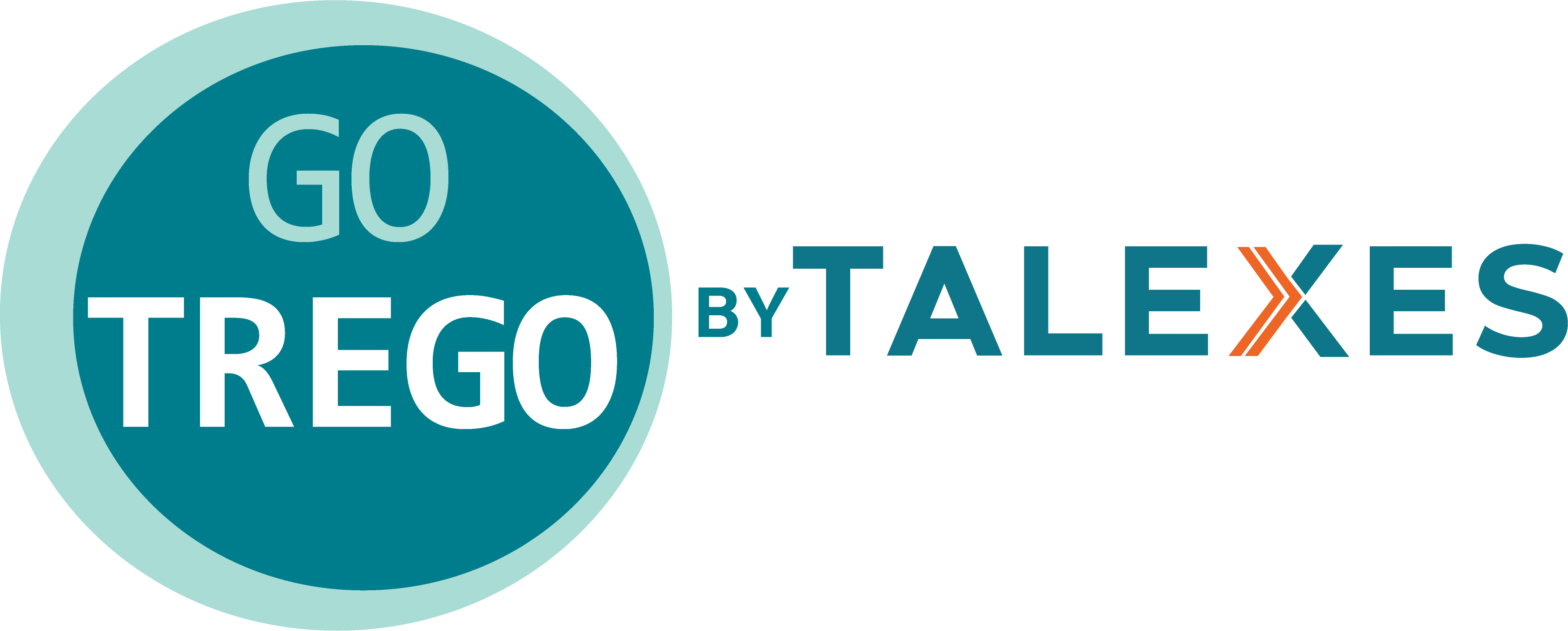A Top Technician’s Perspective on Hiring, Retention, and Productivity I’ve turned a lot of wrenches in a lot of shops. Some places made me want to show up early, stay late, and win every day. Others? I was scrolling job boards on my lunch break. The difference wasn’t brand, volume, or even pay alone. It was how the system treated technicians—as people, as professionals, and as the engine that drives fixed operations. If you want A-player technicians, here’s the truth from the bay floor. The Best Shops Get One Thing Right—Fast My best employer in one sentence? They honored that
Why the Best Dealerships Attract the Best People—On Purpose There’s a simple truth in every high-performing dealer group: “The best people go where the best people already are.” Top talent doesn’t chase job postings. They watch reputations. They pay attention to who’s winning, who’s growing, and which dealerships genuinely invest in their people. The strongest teams don’t form by accident—they compound over time when leaders build environments where excellence is expected, supported, and rewarded. If your dealership wants to win consistently—across sales, fixed operations, leadership, and culture—you don’t just need good people. You need to become a talent magnet. Why
If you’ve ever looked around your dealership and thought, “We have good people working hard… so why aren’t the results there?” — you’re not alone. One of the hardest truths leaders in automotive retail face is this: When performance stalls, it’s rarely a people problem—and it’s almost never fixed with a pep talk. In dealerships, systematic misalignment shows up in familiar ways: Sales, service, parts, and F&I are all busy—but pulling in different directions Priorities shift weekly, depending on inventory, OEM pressure, or the latest fire drill Managers solve problems inside their department, but the customer feels the disconnect Communication
In the ever-evolving auto industry—where innovation, efficiency, and customer satisfaction fuel profitability—people remain the engine behind every success. From the manufacturing floor to the showroom, top-performing dealerships and OEMs know that building a strong workforce isn’t about chasing tools—it’s about embracing a philosophy. Talent optimization is more than deploying assessments or automating hiring processes. It’s a leadership mindset that aligns your people strategy with your business strategy, using data to empower growth—not replace intuition. In a competitive, high-turnover industry like automotive, treating talent as a strategic asset is what separates thriving operations from those constantly playing catch-up. Here’s how auto
The auto industry’s margins hinge on flawless execution—from the engineering lab to the dealership floor. Yet many manufacturers and dealer groups still rely on disconnected assessments that examine a single stage of the talent cycle while ignoring the wider workforce picture. The result? Expensive mis-hires, stalled employee development, and teams that never quite click. Below are nine common assessment blind spots—and how closing them can safeguard productivity and profit in the automotive world. Data Silos Undermine Strategy Most HR tools churn out isolated reports that never make it to plant managers, service directors, or regional GMs. Without a single talent
The auto industry is evolving at breakneck speed—electrification, automation, digital retail, and shifting customer expectations are redefining what leadership looks like. In this high-stakes, high-change environment, companies can no longer afford to rely solely on traditional leadership models. Instead, executive coaching, powered by assessments and tied closely to employee development, has become a critical tool for preparing leaders to navigate uncertainty and drive sustained growth. Here’s how executive coaching is fueling success across the auto sector in 2025—and why it’s a high-ROI investment worth making. Sharper Decision-Making in High-Pressure Environments From managing inventory shortages to making fast-paced strategic calls, auto
In a fast-moving industry like automotive—where innovation, performance, and adaptability are key—developing the next generation of leaders is more than a strategy; it’s a necessity. From dealership floors to design studios and production lines, the ability to identify high-potential employees early and nurture their growth can set a company miles ahead of the competition. The reality is, many future leaders are already on your team. They may not carry a title or lead a department (yet), but they demonstrate traits that, with the right support, can evolve into strong, values-driven leadership. The challenge is knowing who they are—and that’s where
In the fast-evolving auto industry, where precision, innovation, and customer service are top priorities, building the right workforce is more important than ever. As competition for skilled talent intensifies—from factory floors to dealership showrooms—automotive companies are turning to data and assessments to make more informed hiring decisions. However, the challenge lies in maintaining a personal, human-centered experience while leveraging these powerful tools. A data-driven hiring strategy doesn’t mean sacrificing the heart of recruitment. When implemented thoughtfully, it can support better employee development, reduce bias, and help identify candidates who are both capable and culturally aligned. Here’s how businesses in the
The auto industry operates in a fast-paced, high-stakes environment where precision, efficiency, and innovation are critical to success. From assembly lines to sales floors, the performance of each employee directly impacts productivity, customer satisfaction, and overall profitability. To ensure businesses stay competitive, leveraging employee assessments has become an essential strategy for hiring, training, and employee development. While some companies hesitate to invest in assessments due to perceived costs, the long-term return on investment (ROI) makes them a powerful tool for improving hiring accuracy, reducing turnover, and fostering a high-performing workforce. Here are nine key ways employee assessments drive value and
The auto industry is an ever-evolving landscape that demands precision, expertise, and efficiency at every level—from engineering and manufacturing to sales and service. Making the wrong hiring decision in such a fast-paced environment can have costly repercussions, affecting productivity, morale, and overall business performance. A poor hire can lead to operational inefficiencies, customer dissatisfaction, and high turnover rates, all of which impact the company’s bottom line. However, by integrating employee assessments into the hiring and development process, automotive businesses can mitigate these risks and build a workforce that drives success. Here are nine major ways a bad hire can harm
In the fast-paced auto industry, staying ahead of performance challenges is key to maintaining efficiency, innovation, and competitiveness. Addressing performance gaps early ensures employees remain engaged and equipped to meet the evolving demands of the sector. Implementing proactive assessment strategies fosters continuous improvement and creates a culture where employee development thrives. Below are nine strategies tailored to the auto industry for identifying and addressing performance issues before they escalate. Frequent Performance Check-Ins for Early Detection Relying solely on annual reviews is insufficient in a dynamic industry like automotive. Frequent check-ins between managers and employees offer opportunities to address issues early,
In the fast-evolving auto industry, success depends not only on cutting-edge technology but also on the talent behind it. From engineering innovations to manufacturing efficiency, having the right employees in the right roles is critical. Traditional hiring and development methods often fall short in identifying top talent and optimizing workforce potential. This is where scientifically backed assessments come into play. These tools provide a data-driven approach to employee development, ensuring that organizations make informed decisions about hiring, training, and leadership growth. Here’s why employee assessments are essential for auto industry businesses aiming to stay competitive and drive continuous improvement. The
As the auto industry accelerates toward a future defined by electrification, automation, and evolving consumer expectations, companies must embrace continuous improvement to stay ahead. Success in this fast-changing landscape depends not only on cutting-edge technology but also on the development and alignment of a skilled workforce. Employee development, driven by thoughtful assessments, is the key to fostering innovation, adaptability, and long-term success. To build a culture of continuous growth in 2025, auto industry leaders should implement assessment-driven strategies that enhance employee capabilities and optimize organizational performance. Here’s how: Establish a Culture of Constructive Feedback Regular feedback is essential for refining
As the auto industry races toward a transformative future, aligning organizational goals with employee growth is more important than ever. Rapid technological advancements, shifting consumer preferences, and sustainability demands require a cohesive and adaptable workforce. Employee development, powered by well-structured assessments, is key to achieving this alignment and ensuring that teams are equipped to meet 2025’s challenges head-on. Here’s how leveraging assessments can drive organizational cohesion and employee success in the auto sector: Defining a Unified Vision for Growth The foundation of organizational alignment lies in a clear, shared vision. Assessments such as employee surveys or leadership evaluations can help
In the auto industry, where innovation and collaboration are crucial to success, assessing employee performance and potential isn’t just a year-end task—it’s a strategic imperative. Employee assessments, talent evaluations, and onboarding practices provide opportunities to strengthen teams, align goals, and reinforce a culture of diversity and inclusion. By focusing on these key areas, organizations can drive growth and enhance workforce engagement. Here are nine impactful strategies for leveraging employee assessments and onboarding to optimize team performance in the dynamic automotive sector: Uncovering Hidden Talent Through Employment Assessments Employment assessments are essential for identifying team members whose potential might otherwise go
In the auto industry, where precision, innovation, and teamwork are paramount, retaining top talent and ensuring their satisfaction begins long before they step onto the production floor or into the office. A well-structured approach to talent assessments, cultural fit, and employee onboarding can dramatically improve retention, satisfaction, and performance while supporting diversity and inclusion goals. Here are strategies tailored for the auto industry to optimize employee development and create a thriving workforce. 1. Defining Cultural Fit Without Sacrificing Diversity and Inclusion Cultural fit is essential in the auto industry, where employees often work in teams to meet production goals or
In the fast-paced world of the auto industry, building high-performance teams is essential for staying competitive and driving innovation. Achieving this goal requires more than just assembling skilled workers; it demands creating balanced teams where employees’ skills and strengths complement each other. One of the most effective tools for achieving this is through targeted assessments. By leveraging assessment data, automotive companies can enhance employee development and build teams that are not only efficient but also adaptable and innovative. Below are nine ways assessments can drive team success in the auto industry. 1. Identifying Complementary Skillsets Assessments provide deep insights into
In the auto industry, evaluating employee performance means more than just checking off technical competencies. With the rapid adoption of automation, digital systems, and electric vehicle technology, balancing technical abilities (hard skills) with interpersonal skills (soft skills) is crucial. Both contribute to well-rounded, high-performing teams that can drive innovation and adapt to industry changes. Here’s how automotive companies can integrate a balanced assessment approach to maximize employee development and overall performance. Recognizing the Importance of Both Skill Types In automotive roles, hard skills—such as equipment operation, software expertise, or diagnostic skills—are essential for daily tasks. Yet, soft skills like communication,
The automotive industry is undergoing rapid transformation, driven by factors like electric vehicles, autonomous driving, and changing consumer preferences. To navigate this evolving landscape, dealerships need employees who can adapt to new technologies, market trends, and customer expectations. Assessments offer a valuable tool for identifying and developing such individuals. Why Adaptability Matters in Auto Dealership Technological advancements: From electric vehicles to advanced diagnostics, dealerships must stay ahead of the curve. Adaptable employees can quickly learn and implement new technologies. Changing customer preferences: Customer preferences are evolving, with a growing emphasis on personalized experiences and online shopping. Adaptable employees can adjust
In today’s fast-paced business world, a skilled workforce is key to an organization’s success. As industries shift and technology evolves, the required skills within a company change too. Identifying and addressing these skill gaps is essential for staying competitive and ensuring long-term growth. Here are nine strategies for effectively closing skill gaps through targeted assessments and training: 1. Recognizing the Significance of Skill Gaps Skill gaps arise when there is a mismatch between the skills employees have and the skills needed for their roles. When employees lack essential skills, productivity can suffer. Organizations that proactively address skill gaps can quickly
In today’s fast-paced and changing work environment, virtual leadership is now essential. As remote work becomes more common, leading teams effectively in virtual settings is critical for organizational success. Identifying and nurturing remote leaders, however, requires a thoughtful approach. Here are nine ways to evaluate virtual leadership skills and cultivate successful remote leaders: Strong Communication Skills Communication is central to virtual leadership. Assess leaders’ communication skills by looking at their ability to express ideas clearly, listen actively, and create open dialogue in remote settings. Seek leaders who can effectively convey goals, provide constructive feedback, and keep remote teams engaged
The transition to remote work has prompted a reevaluation of employee training and development strategies. Despite the challenges of fostering career growth in remote settings, it remains a crucial aspect of organizational success. Below, we explore five effective approaches to provide remote employees with ample opportunities for professional advancement. Cultivate a Remote-Friendly Company Culture: Creating avenues for professional growth in remote settings necessitates fostering a company culture that values and supports employee development. Establishing strong relationships between remote workers and their managers is vital. Embrace virtual communication tools such as teleconferencing and video chats to facilitate meaningful interactions and
In today’s multifaceted work environment, traditional methods of evaluating employee performance may overlook crucial aspects of their contributions. Holistic employee performance evaluation offers a comprehensive approach that considers various dimensions of performance, including skills, competencies, and cultural alignment. Embracing this holistic perspective enables organizations to gain deeper insights into their workforce and better foster employee growth and development. Here are nine key points highlighting the significance of holistic employee performance evaluation: 1. Comprehensive Assessment Framework Holistic evaluation entails assessing multiple facets of an employee’s performance, such as technical skills, soft skills, and alignment with organizational values. This comprehensive approach provides
In the ever-evolving realm of work, static performance evaluations no longer suffice to drive progress. The paradigm has shifted towards embracing continuous feedback and development as catalysts for growth. Below, we delve into nine pivotal reasons why this approach is vital for nurturing a culture of improvement and success within organizations. 1. Foster Agility with Real-Time Feedback: Continuous feedback empowers employees to adapt swiftly, steering clear of the pitfalls associated with delayed performance assessments. Agility is paramount in today’s dynamic business landscape, and real-time feedback enables prompt adjustments, fostering a culture of adaptability and resilience. 2. Amplify Employee Engagement: Regular
In today’s dynamic work environments, accurately assessing employee performance is crucial given the diverse and intricate nature of job roles. Standardized evaluation methods often fall short in capturing the nuances of different positions, resulting in incomplete assessments and missed opportunities for development. To tackle this challenge effectively, HR professionals need to adopt a personalized approach by designing tailored assessment frameworks for each role within their organizations. Here are nine practical strategies for creating customized evaluation frameworks to ensure accurate performance assessment: Comprehend Role Specifics: Crafting customized assessment frameworks begins with a deep understanding of the unique requirements of each


























